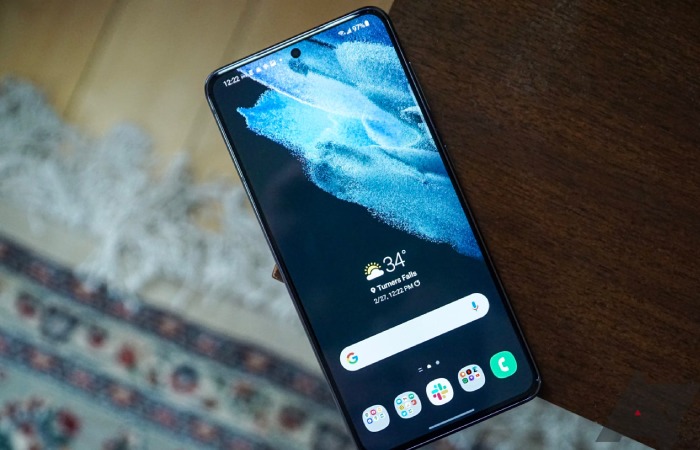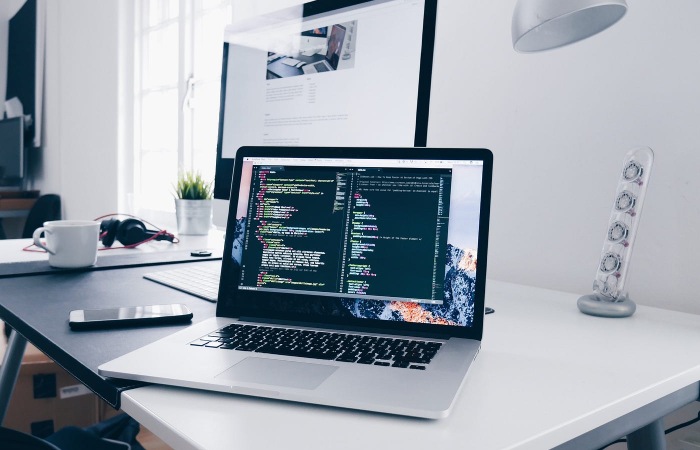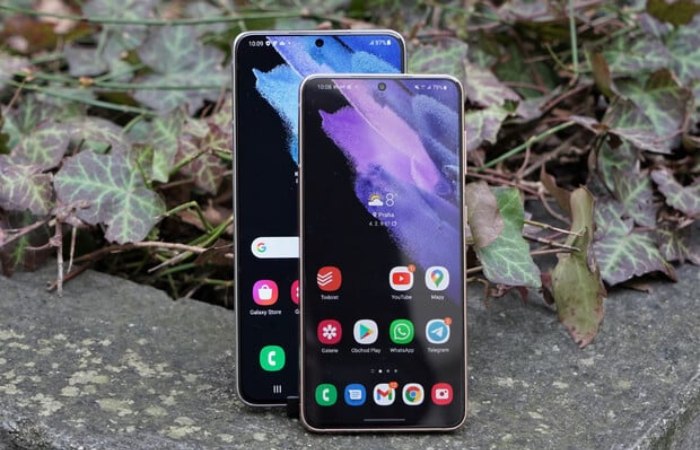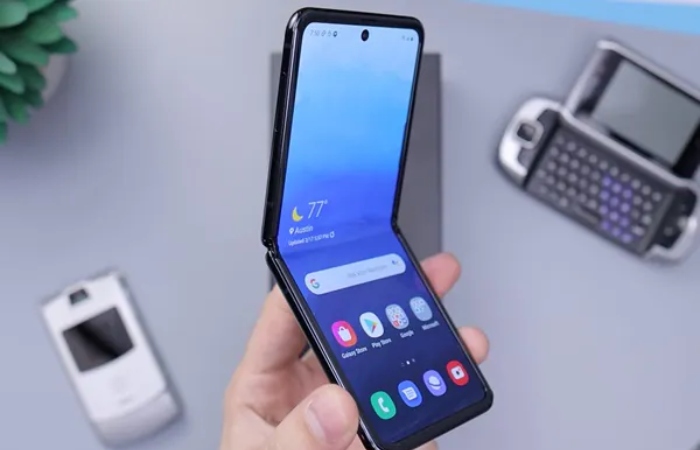One UI Home is the default launcher (home screen interface) on Samsung Galaxy phones and tablets. It is designed to offer a smooth and personalized user experience and offers features such as widget placement, app drawer organization, and theme options. However, some users may ask, “Is One UI Home a spy app?” We are concerned.
What is One UI Home?

One UI Home is pre-installed on Samsung devices and is deeply integrated into the system. It is responsible for how you interact with the home screen, apps, and widgets.
Why the Spyware Question?
Certain factors may trigger One UI Home queries:
- Pre-installation: Certain pre-installed apps may trigger privacy-related queries.
- Data Recovery: Like many apps, One UI Home may collect usage data to improve the user experience.
- Authorizations: One UI Home may request specific authorizations to correct its behaviour.
Is One UI Home a Spyware App?
No, One UI Home is not an anti-spyware app. Here’s what it is:
- Legitimate purpose: Its primary function is to improve the user experience on Samsung devices. There is no hidden purpose to monitor or spy on users.
- Data transparency: Samsung is transparent about the data it collects and how it is used. This information is usually described in your privacy policy.
- Permissions explained: All the permissions requested by One UI Home are related to its core functionality. For example, you may need to access your contacts to see them on the home screen or your location to get weather widgets.
Addressing Privacy Concerns

If you are still worried about privacy, you can follow these steps:
- Check permissions: Go to your device’s settings and check the permissions granted to One UI Home. Turn off any that you find unnecessary.
- Limit data collection: Samsung often provides options to limit data collection in One UI Home settings or through your device’s privacy settings.
Is One UI Home a Spy App? The Verdict
While it’s natural to be wary of any app, especially pre-installed ones, the evidence clearly shows that One UI Home is not a spy app. It’s a legitimate part of the Samsung ecosystem designed to make your phone more accessible and enjoyable.
What is the app One UI Home used for?
One Home is Samsung’s exclusive default launcher and overlay interface for all Samsung Galaxy smartphones and tablets. It works as a standard home screen launcher that allows you to customize apps, widgets, and home screen elements according to your preferences.
In general, it integrates various Samsung services and features, such as:
- Customization possibilities, including templates, icons, and layouts.
- Integration with Samsung Cloud and Samsung Account Service.
- Gesture navigation and, of course, Samsung-specific settings and functions.
One UI Home is Samsung’s home screen that contains all the apps, features, and services of its ecosystem on Android-based devices. The main goal is to provide Samsung users with a complete and consistent experience specific to their hardware and software environment.
Check One UI Home permissions: Is it a spy app?

To check if One UI Home has excessive or concerning permissions that could classify it as a “spy app,” follow these steps on your Samsung devices:
- Open “Settings”> “Apps”
- Find the “One UI” or “Home Screen” app and tap on it.
- You will then see “Request information.” Click “Permissions” to see what is required.
Indeed, most of the permissions One UI Home requests are necessary for normal functioning as a home screen launcher and UI customization app.
Some expected permissions may include:
- Storage/Photos/Media access: To apply wallpapers, icon packs, etc.
- Location access: For location-based widgets, contextual information includes data such as weather conditions and nearby attractions.
- Phone/Contacts: For example, caller ID and contact suggestions.
- Notification access: To manage and maintain app badges and notification cards.
The allowed features may vary between Android versions, though One UI permission should be consistent with the home screen editing functionality.
It is best never to grant anyone special, free access to intercept communications such as SMS messages, call history, and internet traffic.
Samsung also has a personal privacy policy that outlines the types of data collected by One UI . It is primarily used for general use/analysis to improve the usability of the product.
Considering the permissions granted and Samsung’s privacy policy, One UI cannot be “spyware.” Furthermore, this app has the necessary permissions to push Samsung’s proprietary Android system and improve the overall user experience rather than surveillance.
Bonus: How can you protect a kid’s Samsung phone from hidden spy apps?

In today’s digital reality, it’s becoming increasingly difficult to protect children’s digital privacy and cybersecurity.
As smartphones become more popular and accessible for downloading apps, it’s essential to be aware of the potential for cheating apps, known as spyware.
Here are some tips to protect your child’s Samsung phone from such intrusions:
- Keep apps up to date: Update the latest apps on the target device to fix security bugs.
- Use FlashGet Kids: The FlashGet Kids app helps you manage installed apps, limit screen time, and block apps. It can help you detect and uninstall all hidden spy apps from your child’s device.
- Educate your kids: Talk to them about online safety and the risks associated with installing apps from unidentified sources. Encourage them to be cautious and seek advice if they see anything suspicious.
- Use antivirus apps: Install reliable antivirus software on your phone to notice and remove any suspicious spy apps.
- Perform regular checks: Keep a close eye on the apps on your child’s phone and check for any suspicious or unknown ones. Also, check app permissions to ensure it does not secretly access sensitive data or features.
Conclusion
The debate over the privacy implications of One UI is multifaceted. On the one hand, its features are essential for the proper functioning and personalization of user experiences.
No one can simply call One UI a spy app without proof. It is up to users, tech enthusiasts, and privacy advocates to work with service providers like Samsung to demand and ensure the highest standards of transparency and control.
As we last integrating technology into our lives. Balance must maintained between innovation and privacy. It is not just Samsung but all tech companies that owe their users the peace of mind that comes from knowing that their digital assistants are helping and listening to them.
FAQs
Can I uninstall One UI ?
One Home is a system app. Meaning deeply integrated into your Samsung device. While you can’t completely uninstall it, you can usually disable it or replace it with another launcher from the Google Play Store.
What data does One UI collect?
Samsung often collects data such as usage patterns, device information, and preferences to improve the user experience. You can refer to Samsung’s privacy policy for more details.
Is One UI Home safe to use?
Yes, One UI is safe to use. It is a fundamental part of the Samsung ecosystem and poses no security threats.
Can I change the look and feel of One UI Home?
Of course! One UI Home is highly customizable. You can change themes, wallpapers, icon packs, and even the home screen and app drawer layout.
What should I do if I’m still concerned about privacy?
You can view and adjust the permissions granted to One UI Home in your device’s settings. You can also explore privacy-focused launchers on the Google Play Store if you prefer an alternative.
What data does One UI Home collect?
A: Samsung often collects data such as usage habits and preferences to improve user experience. You can find more details in their privacy policy.


